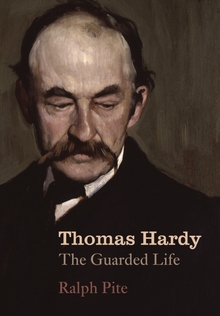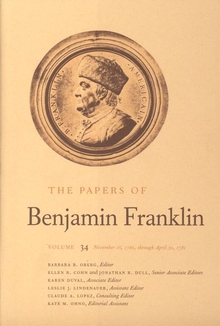A Life in a Wooden O
WARNING
You are viewing an older version of the Yalebooks website. Please visit out new website with more updated information and a better user experience: https://www.yalebooks.com
Memoirs of the Theatre
Ben Iden Payne
Ben Iden Payne spent more than seventy years in the theatre in England and America. On his retirement at the age of ninety it was a very different theatre from the one he entered at nineteen on joining Frank Benson’s touring Shakespeare company. That change was due in no small part to his own efforts. Payne could point to many experiences that would have guaranteed him a place in theatre annals: He was a director of the Abbey Theatre in Dublin. He staged plays for such stars as John Drew, William Gillette, John and Ethel Barrymore, Otis Skinner, and Helen Hayes. And for eight years he was general director of the Shakespeare Memorial Theatre at Stratford-upon-Avon.
Though Payne’s career fills three columns in Who’s Who in the Theatre, two unique achievements stand out from the others. In 1907, as director of Miss Horniman’s Gaiety Theatre company in Manchester, he initiated the repertory movement in England. In four years he brought it to a peak of excellence that has never been surpassed. Later, in America, he began a career in educational theatre that would span half a century. At the Carnegie Institute of Technology he developed his "modified Elizabethan staging" – a technique that has left an indelible mark on the production of Shakespeare’s plays.
In this memoir Payne recalls the English theatre at the turn of the century with wit and affection. His accounts of the popular actor-managers, the fit-up companies, the Playboy riots, and of Yeats, Miss Horniman, and William Poel vividly depict an era. He captures the spirit of the American theatre of the teens, twenties, and thirties – the flamboyance of its producers, the foibles of its stars, and the casting practices that reduced able actors to types.
Above all, Payne tells of his consuming desire to recreate the basic conditions of Shakespeare’s own theatre in order to present his plays most effectively. No antiquarian, he does not quibble over structural details of the "wooden O’s" that housed Elizabethan stages. Instead he writes as a practical theatre man determined to achieve the continuous and fluid movement needed to preserve the "melodic line" of Shakespeare’s plays. The success with which he pursued this ambition has influenced theatre design and inspired others to carry on his work. Yet, in spite of the distinction of his long career, Payne recalls it with the modest simplicity that endeared him to generations of actors and students.
"[This book] ranks at the very top of theatrical biographies. Iden himself comes through—his love for the theatre, his modesty and charm, above all his integrity, are beautifully delineated."—Arthur Kennedy
"Payne was one of the pioneers in modern drama. And his teaching of Shakespeare must have really inspired his students. Whenever I run into them, whether they work in theatre or not, they are true devotees."—Joseph Papp
"On looking back over a lifetime of teachers, I feel sure that B. Iden Payne taught me the most. Thank goodness for his long career and his help to many others like me."—Helen Hayes
"A marvelously human and revealing remembrance of theatrical things past."—Alan Schneider
"Beyond discussing his experiments with fluidity of action in Shakespearean productions, Payne sheds light on those with whom he shared 'life in a wooden O'—Yeats, Shaw, Frank Benson, William Poel, Miss Horniman, and the Barrymores. Recommended for all serious theater and Shakespeare collections."—Library Journal
"A marvelous piece of book-making, a triumph of both the writer's and publisher's art."—Dick Adler, The Los Angeles Times
"The charm of his book reflects nothing but honesty and a lack of any trace of malice or bitterness. His account of his early years—he lived to the age of ninety-two—is wonderfully vivid and amusing. . . . His sketches of personalities are admirably chosen and executed—the eccentric William Poel, Yeats, Lady Gregory, Synge, and especially the redoubtable Miss Horniman. . . . [A] warm and perceptive book, written with such a fresh and balanced outlook, by a devoted disciple of Shakespeare and a scrupulously modest man of the theatre."—John Gielgud, Times Literary Supplement
"[A] charming memoir, full of wisdom and good humor. . . . For the gift of these wide ranging recollections we should be grateful to Payne and to those of his colleagues who helped to bring them to light."—Michael Mullen, Educational Theatre Journal
"Students of theater history will find his book important because of the light he sheds on repertory practices at the turn of the century, as well as those of the emerging single-play combination companies, and on the reaction of audience and actors to the plays of the New Realism. In addition, students of Shakespearean play direction will relish his descriptions of simplified stagings of Shakespeare."—Choice
"A Life in a Wooden O published by Yale University Press is a remarkable work and places Ben Iden Payne firmly amongst the leaders of international theatre. . . . I think his memoirs will be of immense value and interest not only to those of us in the threatre but to the general public enjoying a nostalgic trip into the past. His book is amusing, clearly observed and the atmosphere which pervades it is of a man of intelligence and wit, almost devoid of ego and blessed with a compassion and understanding for his fellow men."—George Murcell, The Stage & Television Today
"These memoirs have all the quiet charm of their author, as well as his modesty, humor, and good manners, those of a bygone age. Payne had a close association with many of the very great (and some of the very prickly) theatre people of his time, Frank Benson, W. B. Yeats, William Poel, Shaw, Galsworthy, Miss Horniman, Florenz Ziegfeld, and a dozen others; but he always emerged the same man, never malicious, determined to keep his artistic integrity and his standards high, warm-hearted, and strangely innocent. He glides graciously down the years as if time were his handmaiden, occasionally (but not too often) mentioning a date, recounting some anecdote to illuminate a forgotten world, continually interesting."—J. L. Styan, Comparative Drama
ISBN: 9780300105520
Publication Date: March 11, 1977
Publication Date: March 11, 1977
224 pages, 7 x 10
25 b/w illus.
25 b/w illus.








